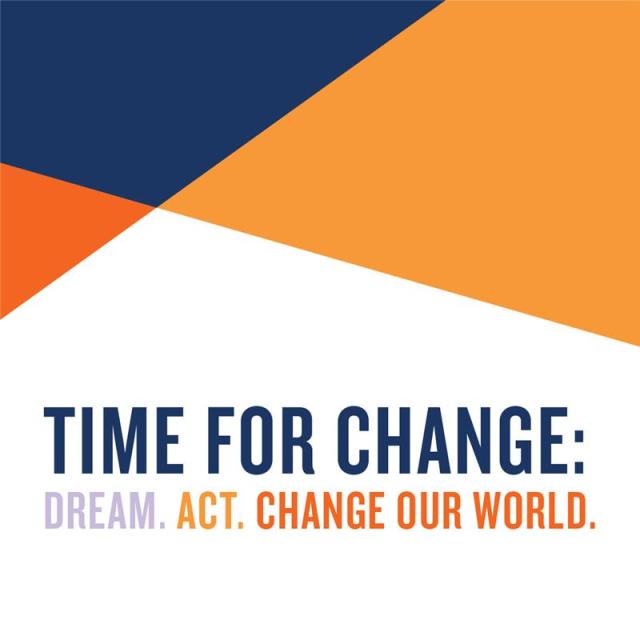
NAME | Madelyn Sheffel
GRADE | 12
LOCATION | Midland, Pennsylvania
“Stop Cancer: Attention to Prevention,” is a project born out of 12th grader from Midland, Pennsylvania, Madelyn Sheffel’s, personal journey witnessing both parents battle cancer. Motivated by the staggering statistics of preventable cancer cases, she researched and collaborated with medical professionals and organizations like the American Cancer Society to identify twelve crucial lifestyle factors contributing to cancer risks. Now she has a portable education center equipped with interactive stations for public events and a robust social media campaign to encourage individuals to adopt a healthier lifestyle to mitigate cancer risks.
She is looking forward to expanding national partnerships, securing funding for additional education centers, and launching an impactful social media strategy. To realize the project's vision, the founder has assembled a dedicated team comprising medical experts, community leaders, and family members, each contributing their expertise to various aspects of an initiative born from a deeply personal and difficult experience.
I vividly remember the day I walked in the front door and saw my mom without hair for the first time. She had just gone through her first round of chemotherapy. It was strange to see my mom without hair, but cancer wasn’t strange to me at this point. While my mom was being treated for breast cancer, my dad was recovering from surgery. He was diagnosed with prostate cancer just 8 months earlier. I was only 8 years old, but both of my parents going through, and surviving cancer diagnoses is something I’ll never forget. Cancer became a huge part of my life.
We learned the odds of two family members being diagnosed with cancer in such a short period were astronomical unless it was influenced by environment or lifestyle. Last year, 1.7 million people were diagnosed with cancer in the United States. The American Cancer Society estimates that 50% of those cases could have been prevented by simple lifestyle modifications. So, I established my community service initiative, “Stop Cancer – Attention to Prevention” to help educate all people about twelve lifestyle changes they can make now, to live a healthier tomorrow.
I dedicated over two years to extensive research on cancer prevention, engaging in conversations with healthcare providers and meticulously crafting this program. Drawing from reputable sources like the World Health Organization and the American Cancer Society, I identified twelve crucial lifestyle factors proven to pose the highest risks of cancer in our society. Collaborating with professionals from the American Cancer Society, the University of Pittsburgh Medical Center Oncology Team, and WTAE-TV, I developed an impactful public education program suitable for dissemination through a social media campaign and a portable pop-up education center.
The creation of a 10’ x 20’ portable center allows for swift setup at events like Relay for Life and other community gatherings, ensuring broad outreach to educate the public. Comprising 12 stations, each focusing on a key prevention method, this setup provides essential information to empower individuals with immediate steps to reduce their cancer risk. Through a post-visit survey and a pledge completed via QR code, visitors have the opportunity to commit to incorporating one or more modifications into their daily lives, fostering program feedback and continuous improvement.
Actively building professional relationships with cancer and community organizations, I strive to expand the program's national reach. Current collaborations with national organizations have consistently elevated my visibility and outreach. In progress is the cultivation of a partnership with a Pittsburgh-based cancer foundation, specializing in in-school educational programs and support for those affected by parental cancer. This partnership would enhance my knowledge and extend the program's impact to classrooms nationwide, making cancer-preventing lifestyle tips a curriculum staple.
Secondly, fundraising efforts are needed to secure resources for additional education centers, enabling participation in multiple events per weekend. In essence, more centers mean more lives saved.
Third, the global expansion of my project centers on a robust social media campaign. Each of the 12 key points was designed to provide a monthly campaign focus. Acknowledging my limitations in social media and website design, I recognize the need for expertise in these areas. Engaging professionals in social media strategy is essential to the development of an effective campaign. Additionally, the creation and activation of a website to promote the program and host educational content such as seminars and videos is imperative to enhance the project's visibility and impact.
The inception of my project traces back to its roots as the focal point for my Girl Scout Gold Award, the pinnacle of Girl Scouting achievements. In assembling a team, I sought expertise to validate medical research, contribute to the educational campaign's development, offer technical assistance in constructing the physical center, and provide guidance in executing the promotional campaign. A strong support system rallied behind me, featuring Nikki, my American Cancer Society representative, and Paris, the Grove City Area Relay for Life Event Lead, who also served as my project advisor. Elena, a WTAE-TV news anchor and the founder of IT Factor Coaching, played a pivotal role in refining the project's design, ensuring it was user-friendly, adaptable to social media, and captivating to the public. Family members played an integral part in engineering and designing the pop-up education center, utilizing their skills to create a sizable (10' x 20') yet easily transportable structure that fits in most cars.
As the founder of the "Kids for a Cure" Relay for Life team, I lead a group of teenagers who, like me, have been affected by cancer. This team provides them with a voice to express their experiences, and my education project equips them with a valuable tool in the fight against cancer. Our collective endeavors have successfully launched my project.